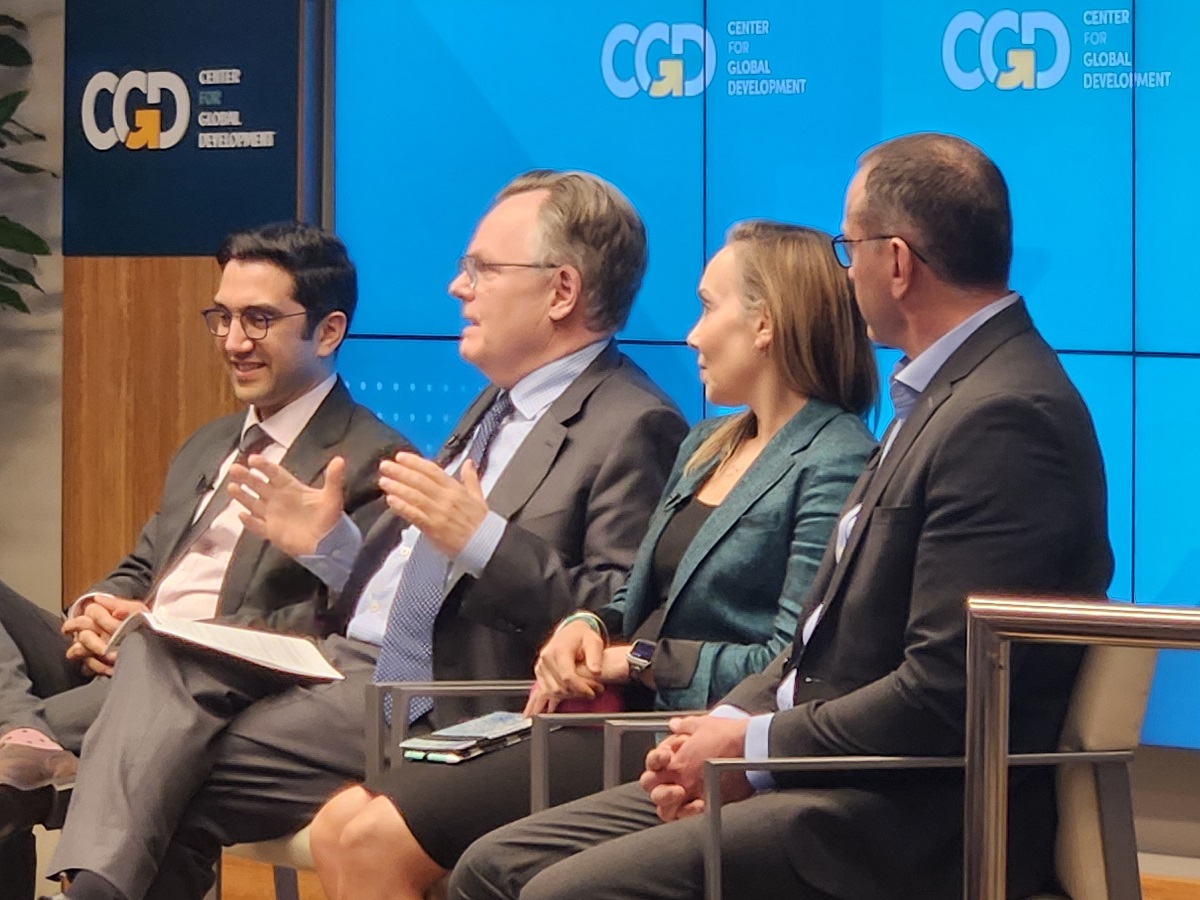It has operations in more than 30 countries worth around $9 billion. And now the European Bank for Reconstruction and Development is searching for its next leader.
Current president Sir Suma Chakrabarti is seeking a second four-year term as EBRD president, and he faces the challenge of Marek Belka, a former Prime Minister and Finance Minister of Poland and currently president of the country’s National Bank.
Recently both candidates recorded interviews with me, which we have edited together into this edition of the CGD Podcast, allowing you to directly compare their responses. For the sake of brevity, we edited down some of the answers, but in the interests of transparency we have also posted both full interviews with Chakrabarti and Belka. If you want to read the candidates’ CVs and their statements, you can find them via the EBRD’s site here.
Our purpose was to explore each candidate’s ideas for the future of the EBRD, given the changing nature of its work and the landscape of development banking. Established exactly 25 years ago to help post-Soviet countries in Eastern Europe transition to market-based economies, the EBRD’s geographical range now stretches from Morocco to Mongolia. Unique among the multilateral development banks (MDBs), the EBRD has a political mandate to assist only those countries that are ‘committed to and applying the principles of multi-party democracy [and] pluralism.’ In addition, CGD’s current work on the future of multilateral development banking raises further questions for EBRD candidates about the role of MDBs in tackling the growing shared problems the world faces, from climate change to pandemic response.
A note about logistics. The interviews were carried out separately, due to conflicting schedules. Each candidate was asked the same questions, although follow-ups differed, depending on their answers. The questions were grouped into categories as follows:
- Scale of EBRD’s operations
- EBRD’s political mandate and the nature of its work
- EBRD’s relationship with Russia, its biggest client
- Relationships with other multilateral development banks (MDBs) including the AIIB
- Future of multilateral development banking
- Final question: why should you be EBRD president?
Candidates were told the categories beforehand, but not the questions.
We arrived at the list of questions and categories with the help of CGD experts, including president Nancy Birdsall and senior fellow Scott Morris (who are leading our High Level Panel on the Future of Multilateral Banking), and Owen Barder, vice president and director of CGD Europe, in London, where the EBRD is also based. In 2012, during the last EBRD presidential search, Owen conducted podcasts with all the candidates, and the EBRD was only too happy for us to play a similar role this time around.
The EBRD’s governors (comprising its shareholders – 65 countries plus the European Union and the European Investment Bank) will vote for the next president at the annual meeting in London on May 11.
CGD blog posts reflect the views of the authors, drawing on prior research and experience in their areas of expertise.
CGD is a nonpartisan, independent organization and does not take institutional positions.





